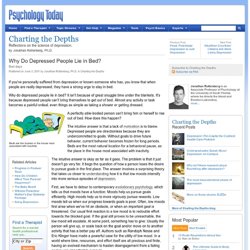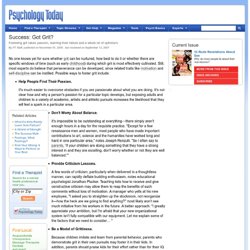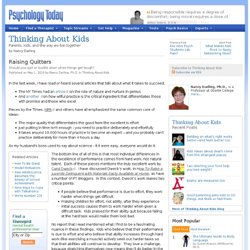

The Most Dangerous Word in the World. If I were to put you into an fMRI scanner—a huge donut-shaped magnet that can take a video of the neural changes happening in your brain—and flash the word “NO” for less than one second, you’d see a sudden release of dozens of stress-producing hormones and neurotransmitters. These chemicals immediately interrupt the normal functioning of your brain, impairing logic, reason, language processing, and communication. In fact, just seeing a list of negative words for a few seconds will make a highly anxious or depressed person feel worse, and the more you ruminate on them, the more you can actually damage key structures that regulate your memory , feelings, and emotions.[1] You’ll disrupt your sleep , your appetite , and your ability to experience long-term happiness and satisfaction.
Any form of negative rumination—for example, worrying about your financial future or health—will stimulate the release of destructive neurochemicals. Eight Keys to Life Hardiness and Resiliency. Elen Keller once wrote: “Character cannot be developed in ease and quiet.

Only through experience of trial and suffering can the soul be strengthened, vision cleared, ambition inspired and success achieved.” As we navigate through challenging times toward a better future, it’s useful to visit some tried and true ideas regarding life hardiness and resiliency. This is not meant to be an exhaustive list, but rather a reminder of some existential ideas we sometimes set aside as we tend to the hectic details of daily life.
If you find this article helpful, share it with those whom you care about who are in need. Emotions and Depression. When you feel depressed, your mood is the headline. However, the story of melancholia normally includes multiple negative emotions. You're Stronger than You Think. In post-tsunami Japan, Zen meets zeal. Japan has a Zen Buddhist concept, "gaman," that doesn't translate directly to English.

It's similar to idioms like "grin and bear it" and "keep a stiff upper lip," but implies a deeper, more culturally embedded brand of stoicism. Gaman is an ethos of patience in the face of extreme catastrophe; it roughly means "to bear the unbearable. " Needless to say, gaman has been necessary in much of Japan over the past 12 months. It was one year ago this Sunday that a magnitude-9.0 earthquake and a 130-foot tsunami ravaged the country's eastern coasts, killing as many as 20,000 people and leaving hundreds of thousands homeless.
Those natural disasters were then quickly followed by an unnatural one, when damage to the Fukushima Daiichi power plant sparked the world's worst nuclear crisis since Chernobyl. This series of tragedies understandably pushed many in Japan past their breaking point, but the country's overall composure in 2011 nonetheless impressed the global community. The Neuroscience of Perseverance.
Why Do Depressed People Lie in Bed? If you've personally suffered from depression or known someone who has, you know that when people are really depressed, they have a strong urge to stay in bed.

Why do depressed people lie in bed? It isn't because of great snuggle time under the blankets. It's because depressed people can't bring themselves to get of bed. Almost any activity or task becomes a painful ordeal, even things as simple as taking a shower or getting dressed. Beds are the location in the house most associated with inactivity A perfectly able-bodied person can't bring him or herself to rise out of bed. The intuitive answer is that a lack of motivation is to blame. The intuitive answer is okay as far as it goes. Underdog Powers: Activate! On Sunday, September 18 th Jamie Rodemeyer of Williamsville, NY committed suicide .

Jamie was only 14 years old but had endured enough cyber bullying to push him over the edge and take his own life. As a gay teenager, I was pushed to the brink of suicide. I know first hand the isolation and self-loathing that goes along with being marginalized. Success: Got Grit? No one knows yet for sure whether grit can be nurtured, how best to do it or whether there are specific windows of time (such as early childhood ) during which grit is most effectively cultivated.

Still, most experts do believe that perseverance can be developed, since related traits like motivation and self-discipline can be instilled. Possible ways to foster grit include: Resilience. Surviving Tough Times. Dick Marcinko, author of and other books about the Navy Seals and related topics, says that when he is looking for tough men for his units, he looks for warthogs, not gazelles.

A gazelle is fast, lovely, and elegant. Warthogs are ugly and slow. To Marcencko, a gazelle is someone who does things effortlessly and well. They're smart and talented. Everything comes easily to them. Raising Quitters. In the last week, I have read or heard several articles that talk about what it takes to succeed.

The NY Times had an article on the role of nature and nurture in genius And another on how willful practice is the critical ingredient that differentiates those with promise and those who excel Pieces by the Times, NPR and others have all emphasized the same common core of ideas: The major quality that differentiates the good from the excellent is effort Just putting in time isn't enough - you need to practice deliberately and effortfully It takes around 10,000 hours of practice to become an expert – and you probably can’t practice deliberately for more than 4 hours a day. As my husband's boss used to say about science - it it were easy, everyone would do it. The bottom line of all of this is that most individual differences in the excellence of performance comes from hard work, not natural talent. If people believe that performance is due to effort, they work harder when things get difficult. The Winning Edge.
The Payoff of Perseverance. Famous Failures.